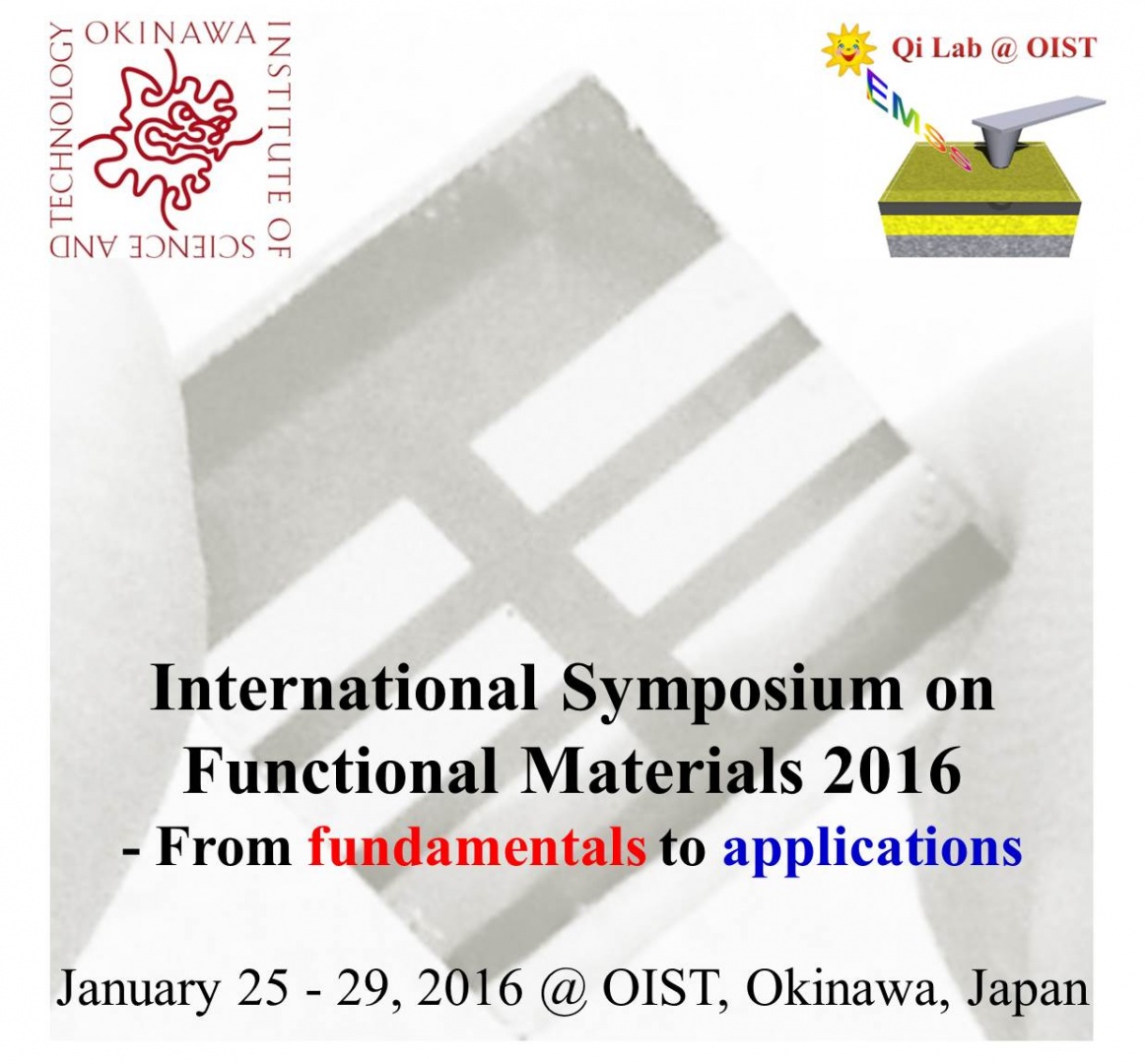ISFM: International Symposium on Functional Materials 2016

Summary of Aims of Symposium
The aim of this symposium is to bring together leading experts and aspiring scientists to report and discuss the latest progress in functional materials as well as instrumentation development for studying these materials. Information exchange and research collaboration will be promoted through stimulating results and engaging discussion, discussion panels, video poster sessions, and mixer events of symposium participants and OIST graduate students, and other flexible interactions. Hot topics will include: organic-inorganic hybrid materials like perovskites, organic energy materials, and scanning-tunneling spectroscopy of functional molecules.
Advances in photovoltaics in the past years with multiple world records over 10% efficiency have been made possible through new functional materials, e.g. organic-inorganic hybrids like perovskites, high performance semiconducting polymers, and small molecules. Perovskites in particular will be highlighted by multiple speakers; perovskite materials are proving them to be the key to promising solid-state dye-sensitized solar cells that are capable of power conversions efficiencies of over 20%. Advanced instrumentation are key to the understanding of the properties and interactions of these new materials, which is critical to optimizing their performance, extending their stability, and developing new materials and device structures to capitalize on these advances.
The symposium will emphasize the topics such as, but not limited to:
- Fundamentals and applications of perovskites
- Rational design and synthesis of functional materials
- Cutting-edge techniques and instrumentation for functional materials investigation
- Air exposure effects, photo-oxidation and lifetime of solar cells
- Plasmonic effects in solar cells
- Thin film deposition and analysis
- Nanostructured thin films
- Oxide films for solar cell applications
- Influence of interface structure and orientation on electronics based on functional materials
- Electronic and optical properties of hybrid materials
- Organic thin film transistors, organic solar cells, and organic light emitting diodes
- Organic/organic, organic/metal, organic/oxide interfaces
- Electroluminescence
- Morphology control and optimization of thin films of functional materials
- Charge transport in crystalline semiconductors
- Electrical properties and energetics of semiconducting polymers and small molecules
Room and board will be covered for all workshop participants. OIST will help with arranging visas, if necessary. Travel grants are available for abstracts of merit.
*OIST is deeply committed to the advancement of women in science, in Japan and worldwide. Women are strongly encouraged to apply.*
Organizers
Symposium Sponsor
Symposium Organizer
Symposium Chair
Advisory committee for the symposium
Prof. Keshav Dani, Femtosecond Spectroscopy Unit, OIST, Japan
Prof. Jean Luc Bredas, Georgia Institute of Technology, USA
Prof. Takao Someya, University of Tokyo, Japan
Please address questions and inquiries to ISFM2016@oist.jp.
Last updated Dec 10, 2014



